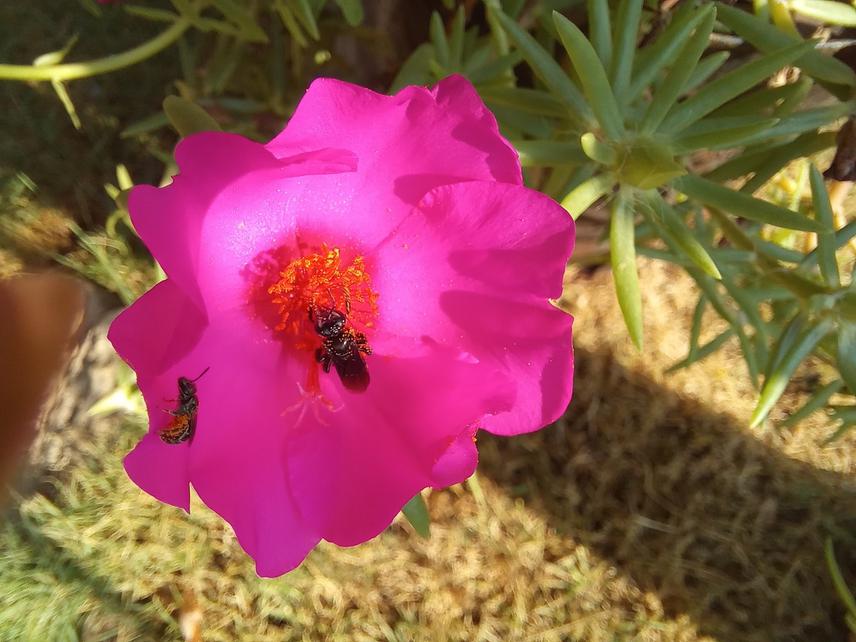Guelmy Chan
The meliponines are pollinators of native flora and crops, has a relevant historical and cultural relevance as they have been bred for generations in certain tropical regions. Therefore, the conservation of the stingless bees, is urgent as they face environmental as well as sociocultural and threatens. On the first realm, stingless bees have problems such as habitat destruction caused by deforestation, climate change and industrial agriculture. On the second realm, the dizzying changes that are taking place in sociocultural terms have impacted the transmissions of knowledge for their breeding. We have been working in Tenosique, Tabasco, Mexico, a community with cultural diversity and where meliponiculture is present. Principally, in the community Redención del Campesino have 16 meliponiculturist and cultive Melipona beecheii.

Stingless bees pollinating the “mañanita” flower in the meliponary. © Guelmy Chan.
The objective is to analyze the sociocultural and environmental elements of the Tabasco meliponicultures to contribute to the strengthening of this activity by implementing participatory action research. The methodology will consist of an evaluation of the conditions of the meliponarios with participatory methodologies. We will know about the characteristics meliponines, meliponiculturists and socioambiental context. Will determine the floral diversity and knowing which are the trees where the bees build their nests.
We will recognize and categorize the main challenges through interviews and workshops with meliponiculturists. We will create strategies to improve the conditions of stingless bees by activating contemporary knowledge and agroecological education.
Header: Stingless bee pollinating Zinnia sp. flower in the meliponary. © Germain López Santiago.